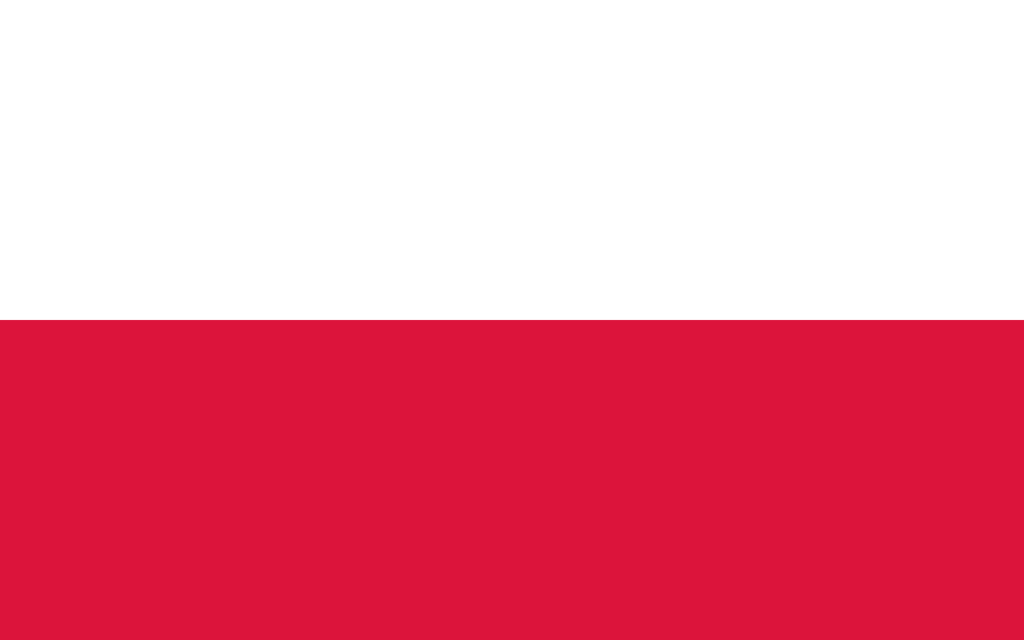General information on the social policy support system in Poland by EU funds (ESF+, ERDF, JTF) in the 2021-2027 perspective
Poland is the beneficiary of European Funds for the fourth time. We benefited from EU support in 2000-2006, in the 2007-2013 perspective, and currently we are still using funds from the EU budget for 2014-2020. In the 2021-2027 perspective, Poland will have at its disposal over EUR 76 billion for the implementation of cohesion policy. The basic document that defines the strategy for the use of European Funds in Poland is Partnership Agreement, being the result of negotiations between the Polish government and the European Commission. The provisions of the Partnership Agreement are implemented through international, national and regional programmes.
Cohesion policy is financed from the following EU funds:
- European regional development fund,
- European Social Fund+,
- Cohesion Fund,
- European Maritime, Fisheries and Aquaculture Fund,
- Just Transition Fund.
In the years 2021-2027, the following programs will be implemented in Poland:
NATIONAL PROGRAMS:
- European Funds for Infrastructure, Climate, Environment: investments in Poland’s energy security, development of renewable energy sources, environmental protection, safe and ecological transport. Money is also allocated to the development of health care, as well as the development of culture and protection of cultural heritage; budget: PLN 113.4 billion
- European Funds for the Modern Economy: budget: PLN 37.1 billion
- European Funds for Social Development : thanks to the money from the program, the situation of people in the changing labor market will improve, the development of education, social and health services will be supported. Support will be provided to parents in caring for children and people with special needs; budget: PLN 18.8 billion
- European Funds for Digital Development : the program accelerates the journey into the digital future. Access to ultra-fast broadband Internet will be increased and e-services will be developed. Cybersecurity will be strengthened and the digital competencies of society will be improved; budget: PLN 9.2 billion
- European Funds for Eastern Poland: budget: PLN 12.3 billion
- European Funds for Food Aid: we allocate money to support the poorest and most needy; budget: PLN 2.4 billion
- European Funds for Fisheries: budget: PLN 2.3 billion
- European Funds for Migration, Borders and Security: it consists of 3 programs: Asylum, Migration and Integration Fund (AMIF), Financial Support Instrument for Border Management and Visa Policy under the Integrated Border Management Fund (IZGW) and the Internal Security Fund (FBW).
- Technical Assistance for European Funds: budget: PLN 2.5 billion
REGIONAL PROGRAMS:
- 16 regional programs: each voivodeship has its own program financing investments/services in its area. Thanks to them, regions will support entrepreneurship, access to education, health care and culture. They take care of social infrastructure and the environment. The funds also support digital technologies, energy and transport; budget: PLN 155.4 billion
INTERNATIONAL PROGRAMS:
- Interreg (European Territorial Cooperation) programs: budget: PLN 2.2 billion
The structure of the support provided as part of social services:
- In the context of social services in Poland, the most relevant is objective 4 of the cohesion policy, ie “Europe with a stronger social dimension”.
- Social services and investments for social policy infrastructure in Poland will be financed under the following funds: ESF+, ERDF and JTF.
- Actions for social services can be implemented at the national level (Programme European Funds for Social Development – FERS) and under regional programmes, where each voivodeship, on the basis of regional studies and analyses, adjusts support in the field of social services to the specificity of its own region. Importantly, the Annex to the Partnership Agreement “Demarcation line” regulates the scope of support provided from the national and regional level in a given thematic area. Thanks to such a division, the support is not duplicated and, where possible, it is complementary.
The Partnership Agreement under the CP4 “Europe with a stronger social dimension” indicates the areas of support:
- labor market, human resources
- education and competence
- social inclusion and integration
- health care, including long-term health care
- culture and sustainable tourism
Regulation (EU) 2021/1057 of the European Parliament and of the Council of 24 June 2021 establishing the European Social Fund Plus (ESF+) and repealing Regulation (EU) No 1296/2013 (hereinafter: the ESF+ Regulation) specifies specific objectives to be achieved Poland is on its way, with the support of the ESF+ in the 2021-2027 perspective.
Thematic concentration
- 25.00% for social inclusion
- European Funds for Social Development 2021-2027(FERS)
- 16 regional programs
Programmed under specific objectives h) to l) Art. 4 of the ESF+ Regulations. Planned ESF+ programmes:
- 4.07% to support the most deprived
- European Funds for Food Aid 2021-2027
Programmed under specific objective m) and, in duly justified cases, l) Art. 4 of the ESF+ Regulations. Planned ESF+ programmes:
- 0.50% for capacity building of social partners and NGOs
- European Funds for Social Development 2021-2027
- 16 regional programs
Programmed under all specific objectives except point (a) m) 4 of the ESF+ Regulations. Planned ESF+ programmes:
- Adequate amount to support youth employment
Programmed under specific objectives a), f) and l) Art. 4 of the ESF+ Regulations
- Adequate amount to support the fight against child poverty
Programmed under specific objectives f), h) to l) Art. 4 of the ESF+ Regulations
Who will implement the Funds in Poland (Central Authority, Managing Authorities, Intermediary Bodies)
He is responsible for the implementation of European Funds in Poland Ministry of Development Funds and Regional Policy. It is his task to coordinate the implementation of the assumptions resulting from the most important document describing how and for what the European Funds will be allocated in the years 2021-2027 – Partnership Agreements.
However, responsibility for implementing the funds is shared among many institutions. A Managing Authority has been appointed for each of the programmes. It is responsible for preparing and managing the programme.
The managing authority for national programs and territorial cooperation programs is the Minister of Finance, Development Funds and Regional Policy (excluding aid to the most deprived and fisheries and the sea). However, for each of the 16 regional programs – The managing authority is the board of the relevant voivodeship.
European Funds for Social Development 2021-2027 (FERS)
The implementation of the European Funds for Social Development Program 2021-2027 (FERS) is the responsibility of several institutions with a specific scope of responsibility, tasks and competences. These are: the Managing Authority (the minister responsible for regional development) and the Intermediary Bodies.
Managing Authority for FERS
The Managing Authority, which is within the structures of the Ministry of Development Funds and Regional Policy, is responsible for managing the European Funds for Social Development 2021-2027 programme. It is responsible for the efficient and correct implementation of the program – both in the overall approach and at the level of individual projects. Moreover, it issues guidelines, recommendations and manuals on various aspects related to the implementation of the program and conducts information and promotion activities.
The competences of the Managing Authority are very broad – starting from the development of the program itself, through the selection of projects for co-financing, ordering payments to beneficiaries and verification of the correctness of expenditure incurred by them, to comprehensive monitoring of program implementation progress and verification of the achieved goals. The tasks of the Program Managing Authority are described in the Act on the principles of implementing cohesion policy programs financed in the 2021-2027 financial perspective.
Monitoring Committee
The Monitoring Committee is an independent consultative and advisory body appointed by the Managing Authority (MA) in the form of an ordinance. Its main objective is to support the MA in the process of program monitoring and implementation. The FERS Monitoring Committee is composed of representatives of: FERS MA, Intermediate Bodies established in the FERS program implementation system, Member State Institutions, partners referred to in Art. 8 of the General Regulation and observers. Representatives of the European Commission will also participate in the work of the FERS MC in a monitoring and advisory role.
Managing Authorities for regional programmes:
- European Funds for Lower Silesia 2021-2027 – Board of the Lower Silesian Voivodeship
- European Funds for Kuyavia and Pomerania 2021-2027 – Management Board of the Kuyavian-Pomeranian Voivodeship
- European Funds for Lubelskie Voivodeship 2021-2027 – Board of the Lubelskie Voivodeship
- European Funds for Lubuskie 2021-2027 – Board of the Lubuskie Voivodeship
- European Funds for the Łódź Region 2021-2027 – Management Board of the Łódź Voivodeship
- European Funds for Małopolska 2021-2027 – Management Board of the Małopolskie Voivodeship
- European Funds for Mazovia 2021-2027 – Management Board of the Mazowieckie Voivodeship
- European Funds for Opolskie 2021-2027 – Board of the Opolskie Voivodeship
- European Funds for Podkarpacie 2021 – 2027 – Board of the Podkarpackie Voivodeship
- European Funds for Podlaskie 2021 -2027 – Board of the Podlaskie Voivodeship
- European Funds for Pomerania 2021-2027 – Board of the Pomeranian Voivodeship
- European Funds for Silesia 2021-2027 – Board of the Silesian Voivodeship
- European Funds for Świętokrzyskie 2021-2027 – Board of the Świętokrzyskie Voivodeship
- European Funds for Warmia and Mazury 2021-2027 – Board of the Warmian-Masurian Voivodeship
- European Funds for Wielkopolska 2021-2027 – Board of the Wielkopolskie Voivodeship
- European Funds for Western Pomerania 2021-2027 – Board of the West Pomeranian Voivodeship
Managing Authorities establish Intermediary Bodies whose obligations are laid down in a contract or agreement. They are usually entrusted with tasks related to e.g. management or implementation of a part of the program related to a specific subject in which a given institution specializes, e.g. environmental protection, labor market, entrepreneurship.
Partnership Agreement on supporting social services in Poland through ESF+, ERDF, JTF (selected issues)
Social economy
The area of social economy will be supported from ESF+ funds. The main objective of the intervention is to create new jobs through direct support for social economy entities, in particular social enterprises. Direct support for the creation and maintenance of a new job in a social enterprise will be settled using unit rates. The purpose of financing job maintenance is to support newly created jobs in terms of ensuring their stability in the first 12 months of the workplace functioning.
Active integration
Under the ESF+, activation support for people and families at risk of poverty or social exclusion and professionally inactive people (including people with disabilities) – individual paths, instruments for social, professional, educational and health activation. Support for the process of social and professional reintegration within reintegration entities.
Due to the nature of the difficulties experienced, the support will use both ESF+ and ERDF funds in a complementary way, i.e. it will include both social elements, services in the field of preventing homelessness and supporting people in the homelessness crisis (e.g. through services streetworking), as well as housing, primarily through the use of the Housing First model.
Social services (in the local community)
One of the currently existing solutions in Poland for the provision of social services is the Act of 19 July 2019 on the provision of social services by a social service center adopted in 2019 (Journal of Laws, item 1818). In addition to the coordination of the services provided, work should be continued on their deinstitutionalization by increasing access to services, but also by moving from institutional care (provided in various types of facilities) to care provided in local communities, bringing them closer to the recipients and embedding them in the local environment – using complementary way of ESF+ and ERDF.
Importantly, under the ERDF, infrastructural investments in facilities providing 24-hour long-term care (24-hour care services) in institutional forms are not allowed. In order to enable the transition from institutionalized care to community care, these facilities will be able to beneficiaries of ESF+ for strictly non-infrastructural investments aimed at deinstitutionalization of services. Managers of these institutions will be able to use the ESF+ for the development of non-residential and non-isolated forms of day support, community support, respite support, support at home and creating partnerships with other service providers for deinstitutionalisation.
It is necessary to continue the actions already taken to support the process of transition from institutional care to family care (family forms of foster care), using the ESF+ and ERDF respectively and in a complementary manner. Actions aimed at supporting children and young people staying in 24-hour care institutions cannot strengthen the institutional potential of these facilities. They may concern support for children and staff to the extent consistent with the idea of deinstitutionalization.
Support for minority communities, including Roma communities
ESF+ support for Roma will continue. It will be comprehensive support: integration, aimed at eliminating barriers in the field of education and training, by improving pro-employment competences, leveling upbringing, communication and language deficits, with particular emphasis on the needs of Roma women, respecting their traditions and cultural heritage with the involvement of representatives of the environment. Social activities will also cover Roma children, in particular in the field of learning the Polish language, educational activities to compensate for deficits, and active forms of spending free time. Health prevention, family support and anti-discrimination activities will also be an important element of comprehensive projects.
Availability of services
Measures aimed at equalizing opportunities and counteracting social exclusion will be reflected in investments aimed at securing and meeting social needs, both from the ESF+, including in the scope of supporting the potential of non-governmental institutions to carry out activities aimed at ensuring accessibility for people with special needs, as well as adapting social infrastructure and public space to the needs of people with special needs from the ERDF.
The Just Transition Fund is a new financial instrument under cohesion policy to provide support to areas facing major socio-economic challenges resulting from the transition in their efforts to achieve climate neutrality. There are several areas in Poland to which JTF support is addressed – these are the voivodeships most exposed to the effects of the energy transformation. (Silesian, Wielkopolskie, Dolnośląskie, Małopolskie, Łódzkie voivodeships). The greatest transformation challenge is faced by the Śląskie Voivodeship, where EUR 41 million has been allocated under the JTF for social inclusion – strengthening the process of just transformation. It is both a challenge and a potential to support the inhabitants of the region with social services in the process of transformation.
Summary
The ERDF will support projects related to the development of social infrastructure related to the process of social integration, social and professional activation and social activation, respecting the horizontal principle of deinstitutionalisation. This includes development of sheltered housing (training, supported housing) and assisted housing related to the process of social integration and socio-professional activation (ESF+), as well as the creation and development of day care facilities and the development of services provided in the local community, including respite care, along with the provision of equipment including adaptation to the needs of people with disabilities. The aim of the actions planned to be implemented is to increase the active participation of people who, due to their age, health or disability, require care or support due to the inability to independently perform at least one of the basic activities of daily living.
References:
- www.gov.pl – Website of the Republic of Poland
- www.funduszeeuropejskie.gov.pl official portal of European Funds
- https://www.gov.pl/web/fundusze-regiony official website of the Ministry of Development Funds and Regional Policy
- https://www.gov.pl/web/rodzina – official website of the Ministry of Family and Social Policy
- https://www.funduszeeuropejskie.gov.pl/strony/o-funduszach/punkty/centralny-punkt-informacyjny-funduszy-europejskich/ Central Information Point of European Funds
- https://www.ngo.pl/ – portal of non-governmental organizations
- https://ops.pl/kategoria/baza-instytucji/typ/regionalny-osrodek-polityki-spolecznej/ – social assistance portal (e.g. list of Regional Centers for Social Policy).
- https://www.pfron.org.pl/ – State Fund for the Rehabilitation of the Disabled
Co-funded by the European Union. Views and opinions expressed are however those of the author(s) only and do not necessarily reflect those of the European Union. Neither the European Union nor the granting authority can be held responsible for them.




